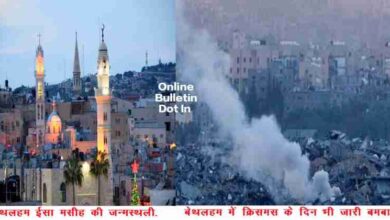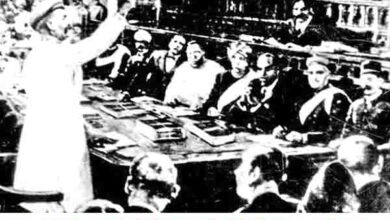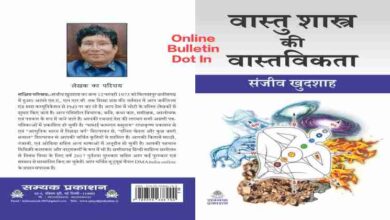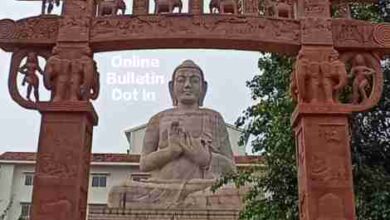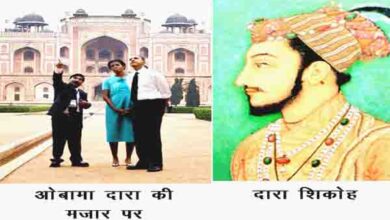The law should be sufficient and simple that the farmer can understand it | newsforum
(Today, corruption is so widespread at all levels of administration that a fundamental value of empathy and public service is non-existent. Even the poorest and the weak are falling prey to petty corruption. Easy paying bribes are relatively common in many countries. These take the form of payments that are intended to speed up small decisions and transactions.)

©Manoj Haryanvi, Haryana
Independent commentator and singer.
“Corruption” is the giving or receiving of benefits through means which are unlawful, immoral, or messing with one’s duty or the rights of others. Corruption is a failure of morality. It is unfortunate that corruption has become a habit of habit for many people, ranging from individuals with high corruption to retail or local corruption, who are destroying the everyday lives of common people.
Corruption is a sign of moral decline in society, its dangerous aspect is that the attitude of society towards corruption is also changing. A few decades ago a corrupt and immoral person was abandoned and abandoned. But now their presence is not only tolerated, but they are considered normal. Today, whenever corrupt persons go to jail, their followers demonstrate immense grief and when they come out of jail, sweets are distributed. Today citizens are choosing corrupt political leaders because the power of money is seen as an act that can work. For example, the coal allocation scam, also known as ‘Coalgate’, is a political scandal that brought the UPA government into disrepute in 2012.
Today, corruption is so widespread at all levels of administration that a fundamental value of empathy and public service is non-existent. Even the poorest and the weak are falling prey to petty corruption. Easy paying bribes are relatively common in many countries, taking the form of payments intended to speed up small decisions and transactions. In these cases where India’s image is at stake, there is no corruption in the Gulf countries. If we look at the perception of our country towards the outside world, there is rampant corruption at the highest level. The Commonwealth Games scam and the 2G spectrum scam show a rapid rise in corruption.
The solution to the problem of corruption is to be more systemic than any other issue of governance. Reducing the economic role of the state, only by resorting to liberalization and privatization is not necessary to solve the problem. Effective and coordinated policies against corruption have to be adopted. Develop a coherent anti-corruption policy that identifies the causes of corruption and seeks practical, coordinated, and effective measures to address these causes.
A fair and transparent system of public procurement can greatly reduce this. Establishing a procurement system, built on the principles of objectivity, transparency, and competition is critical to saving public money and ensuring that government policy and developmental objectives are met. The E-marketplace is a step in the right direction. With this, the public finance management system also helps in tracking the actual use of funds. Strong transparency and public reporting, and an informed society with free use of information is a strong deterrent to corruption. This underscores the importance of transparency, public reporting, and access to information in preventing corruption.
The right to information needs to be strengthened to make public officials and governments more accountable to citizens. Citizens should be vigilant: otherwise, as Plato said “punishments by the wise who refuse to participate in government suffer under the government of bad men” so institutional monitoring and legislative reform are also necessary. Institutional arrangements need to be reviewed and where those vested with power are made accountable, their functioning needs to be made more transparent and subjected to social audit with a view to reducing discretionary decisions.
Napoleon said, ‘The law should be sufficient enough that it can be kept in a coat pocket and it should be so simple that it can be understood by the farmer’. The second ARC recommended that the Prevention of Corruption Act should be amended to ensure that the sanctioning officers could obtain the documents instead of summoning them and present them before the courts by the appropriate authority.
E-governance and focus should be on e-governance and systemic change. An honest system of governance will displace unscrupulous individuals. The processes, laws, and regulations that give rise to corruption and come in the way of an efficient delivery system have to be abolished. A distorted system of incentives in public life, which makes corruption a high-risk, low-risk activity, needs to be addressed. In this context, the public example is to be excluded from those convicted of corruption.
Corruption has an adverse effect on the poorest and most vulnerable, increasing costs and reducing access to services, including health, education, and justice. Corruption erodes trust in the government and weakens the social contract. This is a cause for concern around the world, but especially in contexts of fragility and violence, corruption promotes inequality and discontent leading to fragility, violent extremism, and conflict. It is, therefore, necessary that all forms of corruption should be eradicated for “self-sufficient India”.



